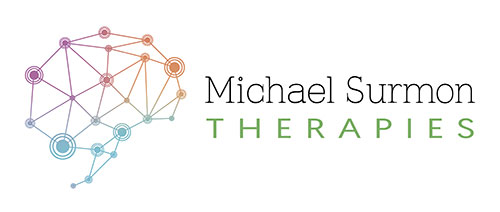Hypnotherapy
The right path for you?
Hypnotherapy
Hypnotherapy is the use of hypnosis in therapy as part of a treatment plan in order to facilitate change in people. This can be applied in order to alleviate specific symptoms, health conditions or unwanted habits to name but a few.
There are a few questions that come up a bit more often than others. Below, I explain my views (and research findings of others) on these questions.
Many people ask me, “Why hypnotherapy? How well does it work?”
I always start with this:
Well, the evidence started piling up years ago….
A review study by Alfred Barrios Ph.D. many years ago already revealed the following results regarding recovery rates:
- Hypnotherapy was 93% after an average of 6 sessions.
- Psychoanalysis was 38% after an average of 600 sessions.
- Behaviour Therapy was 72% after 22 sessions.
(Psychotherapy: Theory, Research and Practice, 1970)

How would I describe hypnosis?
The concept of hypnosis is that it is a state of mind that has potential for people to be able to explore enhance and manage situations, as well as an experience within which people can increase their performance of activities and also deepen their involvement in activities. It is also a skill that can be learned that could enrich and improve a person’s life. The experience of hypnosis is very much in the control of an individual and so all hypnosis is self-hypnosis. We experience hypnosis in normal day-to-day life, like when we become engrossed in a book or movie, and are transfixed by it to the point that all other external stimuli seem to fade into the background.
During hypnosis we become dissociated from our current surroundings, so we suspend our critical consciousness to some extent and engage in a simple flow of experiencing, reminiscent of daydreaming. During hypnosis we aim to become absorbed by the process – meaning that we become so fully involved and engaged in an activity that awareness of external reality is diminished, like not being aware of the passage of time or events around us when becoming completely engaged in the realistic and engaging imagery conjured up by the author when reading a book.
So hypnosis is a skill that we learn and develop through practise and by adopting a specific hypnotic mindset.
This mindset can also be seen as a set of attitudes that consist of a number of ordinary processes, such as your attitude towards hypnosis, your motivation, your beliefs, imagination, expectations and the level of your engagement with the role of being hypnotised. We learn to recognise when and how to respond to hypnotic induction methods, activating our hypnotic mindset by engaging our imagination, expecting the process to be successful, being motivated for it to be successful, to focus and absorb ourselves in the process and to avoid distractions whilst doing this.
So when we experience hypnosis, we have focused attention and reduced awareness of our surroundings, engaging in a process that we are motivated and expectant to be successful in whilst fully engaging in the role of being hypnotised, committed to investing time, effort and enthusiasm towards the process.
During hypnosis our suggestibility is raised and used in order to recreate our reality in a believed in imagination in order to facilitate change.
Can I describe the process of hypnotherapy?
Of course!
Hypnotherapy is the use of hypnosis in therapy as part of a treatment plan in order to facilitate change in people. This can be applied in order to alleviate specific symptoms, health conditions or unwanted habits to name but a few. For me, the easiest way to describe the process of hypnotherapy is by describing the stages or sessions that together make up the whole of the process.
Another question often asked is, “What are the adverse effects of hypnotherapy?”
We can debunk the general myths, misconceptions and some media depictions of hypnotherapy causing adverse events.
A study that collected data from ClinicalTrials.gov, a publicly available register, found that the rate of serious adverse events during clinical trials that used hypnosis was 0%.
There are, as with all studies, some limitations to this study, which I will share with you if you wish.
Thanks to aecollegeofhypnosis.uk for this information.

